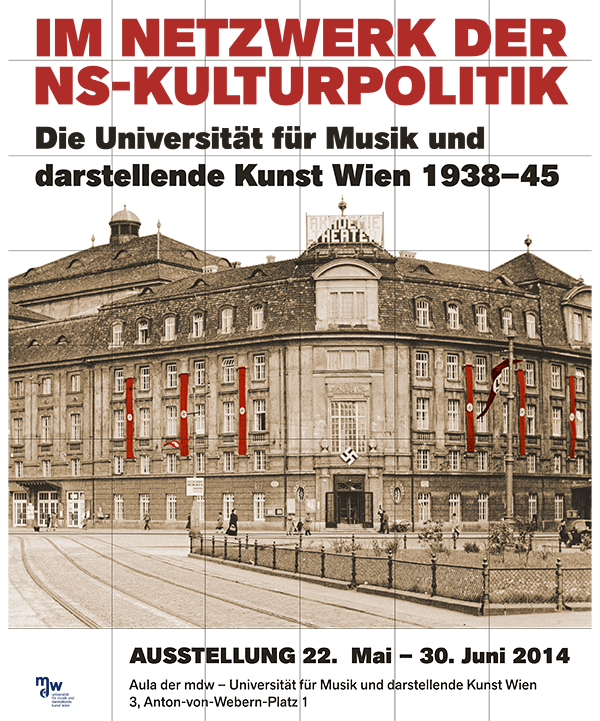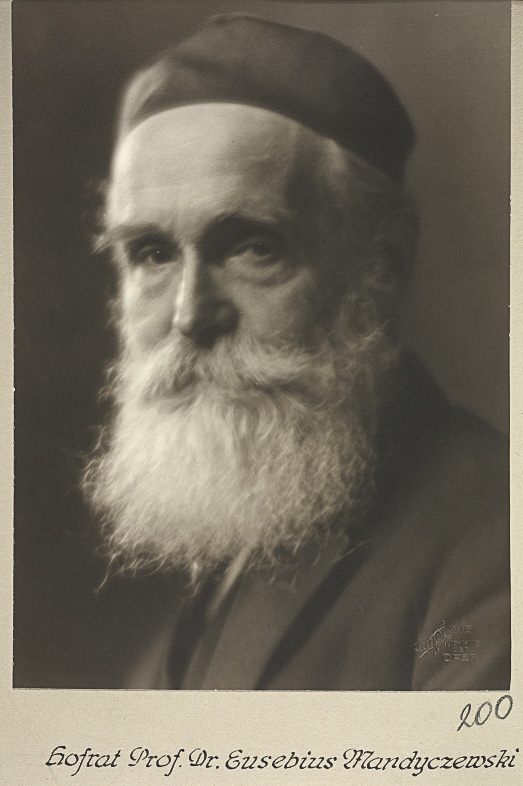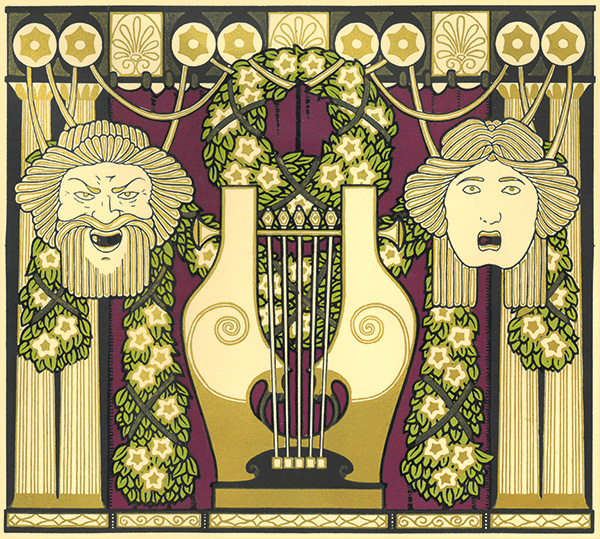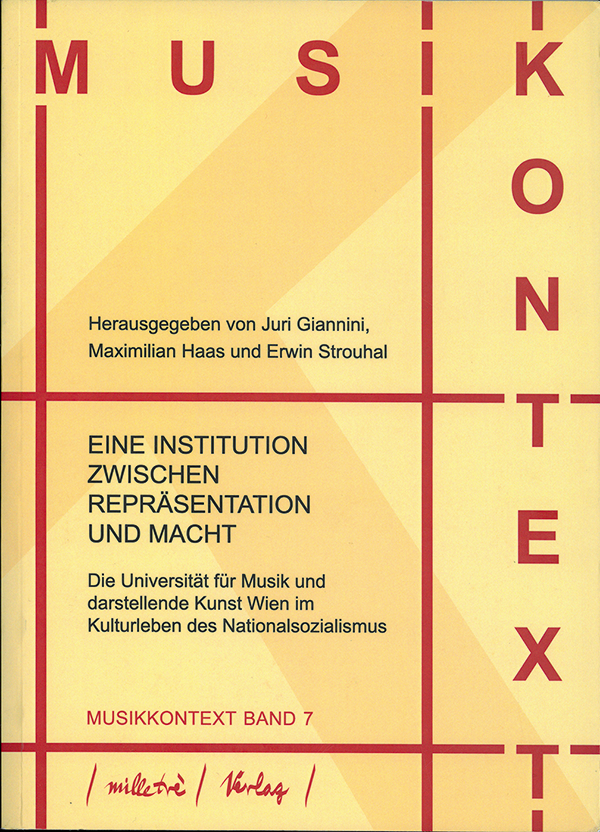With the setup of an archive 25 years ago, the mdw re-established an administrative tradition that had ended with the Austrian state’s takeover of the Conservatory of the Gesellschaft der Musikfreunde at the beginning of the 20th century.
At the state institution henceforth referred to as the Academy, awareness of the historical dimension of actions by the institution and by those attached to it receded into the background. And from that point onward, breaks in the institution’s history—mostly in connection with political events—would have frequent and negative effects on its tradition of documentation: following the collapse of the monarchy, the Academy stopped compiling annual reports; a 1932 reorganisation saw parts of older document collections destroyed, and following the Second World War, all of the old documentary material that was still present was turned over to the Austrian State Archives.

A change of attitude after many years came thanks above all to former Rector Gottfried Scholz, whose initiative led to the establishment of today’s mdw Archive.
“Since the Academy’s archival holdings have not come together on the basis of consistent archiving from this institution’s founding onward, with what is present being only partly the result of such work, one significant element of organising the Archive will be to track down and collect relevant materials […].”
This passage from the classified advertisement soliciting applications for the post of Archive head shows that the initial situation at this new facility was anything but straightforward: the object was to compile a new archive on the basis of the holdings distributed among the mdw’s various locations, and decades of improper handling of the historical material up to then entailed that part of the Archive’s work would consist in reconstruction, in searching both for gaps in the holdings and for ways to close these gaps—a project that continues to this very day.
The establishment of the Archive made it possible to close the largest gap quite quickly, however, by taking back the Austrian State Archives’ holdings of mdw documents. Since then, the University has had available to it the historic source material on its history that originated after 1909.
Memory of an Institution
Safeguarding, Conservation, Storage, Collecting
The Archive’s fundamental responsibilities encompass preserving and safeguarding historical written documentation, including implementation of the best possible conservation measures and ensuring optimal storage that serves to preserve the mdw’s institutional memory. The task of preserving this memory also entails that the holdings be ordered, consolidated, and structured. Archival evaluation—i.e., qualified assessment of materials’ archive-worthiness—means making decisions on storing or discarding written matter. And the admission of various materials that complement core holdings such as photos, newspaper reports, publications, posters, and the like joins the acquisition of the estates of individuals associated in life with the mdw as part of the Archive’s active collection and documentary work.
Opening
Just as important as the task of preservation is the Archive’s opening up to the outside: advising and assisting internal and external researchers along with answering questions asked by colleagues from the University’s administration and from its artistic, research-oriented, and education-oriented departments is also part of the Archive’s everyday activities.
Interface Between the Past and the Future

The function of the Archive, however, goes far beyond just that of memory or of preserving old paper. The Archive, with a constant eye to the future, views itself as being anchored firmly in the present—and thus committed to the present’s archiving standards and legal obligations.
Digitisation
A pivotal theme for the present and the future is digitisation, including up-to-date ways of accessing sources and both minimising wear on and preserving valuable or fragile/deteriorated items. The archive plays a key role in decisions regarding present-day and future written matter, as seen in its participation in the process to select an internal enterprise content management system for the mdw.
Networking
By virtue of its double role as an organisational unit of the University’s administration and as a place of research, the Archive is networked with the mdw’s departments and administrative units on various levels. The spectrum of internal collaboration ranges from the retrieval of documents to advising on document storage to participation in artistic and scholarly projects.
As part of its membership in the Specialist Group of University and Research Institution Archivists of the Association of Austrian Archivists (VÖA), the Archive actively takes part in conferences and workshops. These represent opportunities for exchange, further training, and networking on all archiving-related issues. Furthermore, close contact is maintained with other archives in Austria and abroad based on common research interests.
A Lively Store of Knowledge

Exhibitions, lectures, and publications represent a central component of the Archive’s activities—as do collaborative efforts and projects with colleagues at the mdw, at external research
institutions, and at other archives. By researching the mdw’s history from various historical and cultural studies-related perspectives, processes of institutional transformation are pointed out and ever-new glimpses of the past are made possible. The Archive pursues a broad methodical and scholarly approach, and by involving the disciplines represented at our university, it makes an important contribution to the institution’s transdisciplinary research activities.
Expanding the “Store of Knowledge”
In order to include various levels of action in the University’s historical record and thus enjoy an expanded view of both the history of and the various individual stories at the mdw, the Archive conducts interviews with individuals associated with the mdw (teaching staff, students, and administrative personnel) on a continual basis. This generates new source material that can contribute further to the multi-layered representation of the institution, which takes its character from individuals hailing from a variety of social and cultural backgrounds. The diversity of opinionsand personal views thus documented helps to make visible our institution’s diversity as well as the network of relationships that arise from the attendant interaction.
The Archive as a research organisation constantly takes into account varied approaches to sources, current developments in historical scholarship, and new findings from historical research and archival science in producing its record of the University’s history—and it conceives of itself as an innovative institution that, on the basis of tradition and a retrospective view of history, remains constantly open to the new.
Selected Exhibitions and Publications from Recent Years

“I am a musician now, earnestly and free from regret.” – The Composer and Teacher Richard Stöhr (2017)
Im Netzwerk der NS-Kulturpolitik. Die Universität für Musik und darstellende Kunst Wien 1938–45 (2014)
spiel|mach|t|raum – mdw Exhibition to mark 100 years of the International Women’s Day (2011)
Severin Matiasovits and Erwin Strouhal, “Innen(an)sichten – Außenwirkungen”, in: Cornelia Szabó-Knotik and Anita Mayer-Hirzberger, “Be/Spiegelungen”. Die Universität für Musik und darstellende Kunst Wien als kulturvermittelnde bzw. -schaffende Institution im Kontext der Kultur- und Sozialgeschichte (= Anklänge. Wiener Jahrbuch für Musikwissenschaft 2017), Vienna 2018
Erwin Strouhal and Lynne Heller, “‘dass auch unsere Leute […] in Position gebracht werden’. Personnel Policy at the mdw – University of Music and Performing Arts Vienna”, 1918–1945, in: Johannes Koll (ed.), “Säuberungen” an österreichischen Hochschulen 1934-1945, Vienna / Cologne / Weimar 2017
Lynne Heller and Erwin Strouhal, “Von der Registratur zum Archiv”, in: Antje Kalcher und Dietmar Schenk (eds.), Archive zur Musikkultur nach 1945. Verzeichnis und Texte, Munich 2016
Erwin Strouhal, “Zusammenspiel. Das ‘Professoren-Konzert’ der Staatsakademie für Musik und darstellende Kunst vom 12. Dezember 1938 als Beispiel für Repräsentation, Macht und Institution”, in: Juri Giannini, Maximilan Haas and Erwin Strouhal (eds.), Eine Institution zwischen Repräsentation und Macht. Die Universität für Musik und darstellende Kunst Wien im Kulturleben des Nationalsozialismus (= Musikkontext vol. 7), Vienna 2014
Lynne Heller, “’Ich lege auf die Rückberufung der obgenannten ehemaligen Lehrkräfte keinen besonderen Wert.’ Zur Wiedereinstellungspolitik an der Akademie für Musik und darstellende Kunst Wien”, in: Matthias Pasdzierny / Dörte Schmidt (eds.), Zwischen individueller Biographie und Institution. Zu den Bedingungen beruflicher Rückkehr von Musikern aus dem Exil (= Forum Musikwissenschaft 9), Schliengen 2013
Wanted!
In the interest of expanding its holdings, the Archive is searching for personal memorabilia of individuals who have been students, instructors, and/or administrators at the mdw.
Please feel welcome to contact us at archiv@mdw.ac.at or at +43 1 711 55 – 6500.

